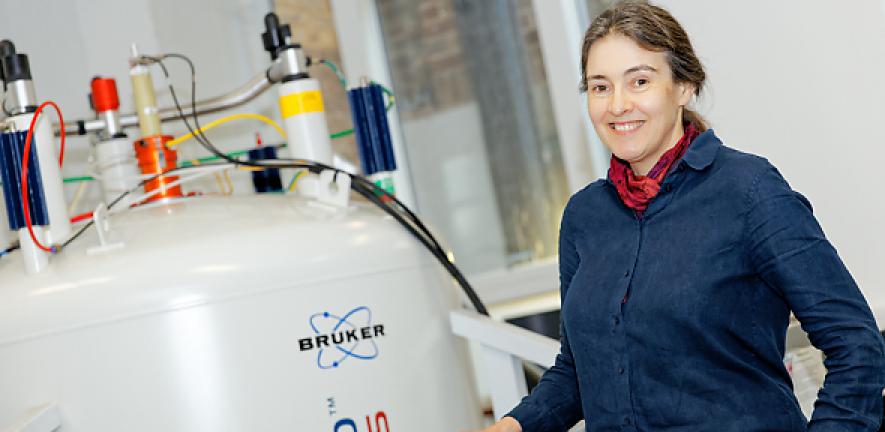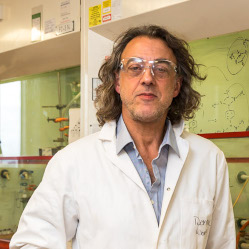
The Faraday Institution announced today the £29 million investment in six key battery research projects, which have been reshaped to focus on the areas with the greatest potential for a successful commercial impact.
Grey leads the Faraday Institution’s battery degradation project, whose crucial aim is to extend battery life. Her research into understanding degradation mechanisms in lithium-ion batteries uses a suite of advanced modelling and characterisation techniques, and is considered a centre of excellence. The project will now be expanded to investigate other systems of industrial interest and will be co-led by Grey and Professor Louis Piper of WMG at the University of Warwick.
Grey said: “I’m excited that the Degradation Project was renewed – understanding how batteries fail and using the information to extend battery life is one of the most straightforward approaches to increase the sustainability of batteries and reduce cost. It's an area where we still lack fundamental understanding of the complex and coupled chemical processes that occur over multiple time and lengthscales.”
 Professor Dominic Wright of this department will play a role in the project by synthesising new electrolyte formulations compatible with the anode and cathodes under study, for evaluation and improved understanding.
Professor Dominic Wright of this department will play a role in the project by synthesising new electrolyte formulations compatible with the anode and cathodes under study, for evaluation and improved understanding.
Wright said: "This is an area where traditional inorganic synthesis can have a key impact on leading technology. Developing new electrolyte systems for lithium ion-batteries should improve battery lifetimes as well provide an important component for new types of batteries with greater energy densities."
Researchers from the University of Cambridge will also be involved in two projects on battery safety and lithium-sulfur batteries. The other key projects included in the Faraday funding commitment include battery modelling, recycling and reuse and solid-state batteries.
“The Faraday Institution is committed to identifying and investing in the most promising and impactful battery research initiatives. This project refocusing is an important part of that process, and allows us to direct even more effort towards those areas of research that offer the maximum potential of delivering societal, environmental, and commercial impact,” said Professor Pam Thomas, Faraday Institution CEO.
The Faraday Institution is the UK’s independent institute for electrochemical energy storage research, skills development, market analysis, and early-stage commercialisation. It is a registered charity with an independent board of trustees, and works with the Faraday Battery Challenge to deliver the funding from Innovate UK for UK Research and Innovation.
The Faraday Battery Challenge is making the UK a science and innovation superpower for batteries, supporting the UK's world-class battery facilities along with growing innovative businesses that are developing the battery supply chain for our future prosperity. Its aim is to build a high-tech, high-value, high-skill battery industry in the UK.
Business and Trade Minister Nusrat Ghani said: “Growing the battery industry is vital to positioning the UK as the best location in the world to manufacture electric vehicles. This funding will help businesses become more innovative and productive, helping to create more skilled, high-wage jobs across the UK, future-proofing our economy and supporting our ambition towards a cleaner, greener future.”
The Faraday Institution research programme includes four other large, coordinated research projects on next generation cathode materials, electrode manufacturing, and sodium-ion batteries, which are undergoing a similar refocusing process and the outcome of which will be announced in the autumn of 2023.

